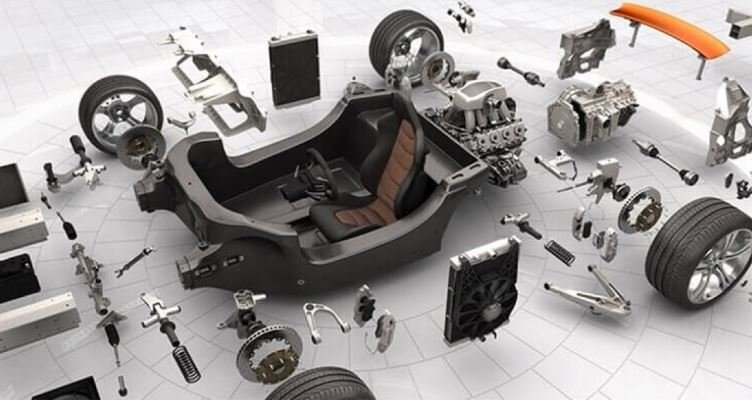Essential car parts are crucial for keeping your vehicle in top condition. Understanding these components and their functions helps you maintain your car effectively. This guide covers vital car parts, their roles, and tips for maintaining them.

Key Car Parts and Their Functions
Essential car parts include the engine, transmission, brakes, and suspension. Each part plays a significant role in your car’s performance and safety.
- Engine: The engine generates power by burning fuel. It is the heart of your vehicle. Regular oil changes and filter replacements keep the engine running smoothly. Fresh oil reduces friction and prevents overheating, ensuring reliable performance.
- Transmission: The transmission transfers power from the engine to the wheels. It manages gear shifts and ensures smooth acceleration. Checking and topping off transmission fluid regularly helps maintain optimal performance and prevents costly repairs.
- Brakes: The brake system includes brake pads, rotors, and calipers. It is crucial for safe stopping. Regularly inspect brake components for wear and replace them as needed. Well-maintained brakes ensure effective stopping power and overall safety.
- Suspension: The suspension system maintains ride comfort and vehicle stability. It includes shocks, struts, and control arms. Inspect these components for signs of damage or wear. Proper maintenance improves handling, especially on rough terrain.
Essential Maintenance Practices
Essential car parts require regular maintenance to ensure optimal performance and longevity. Here are key practices for keeping your vehicle in good shape.
- Regular Oil Changes: Engine oil lubricates moving parts and prevents overheating. Change the oil according to the manufacturer’s recommendations. Regular oil changes ensure smooth engine operation and extend its lifespan.
- Fluid Checks: Regularly check and top off essential fluids such as coolant, brake fluid, and power steering fluid. Maintaining proper fluid levels is crucial for optimal vehicle performance. Follow the manufacturer’s schedule for fluid replacement to avoid potential damage.
- Tire Maintenance: Inspect your tires for proper inflation, tread depth, and signs of wear. Properly inflated tires improve fuel efficiency and handling. Rotate your tires as recommended to promote even wear and extend their lifespan.
- Filter Replacements: Replace air, fuel, and cabin filters as recommended. A clean air filter enhances engine performance, while a clean cabin filter improves air quality inside the vehicle. Regular filter maintenance supports overall vehicle health and efficiency.
Performing DIY Maintenance
Essential car parts require some DIY maintenance tasks that can save money and improve your vehicle’s condition. Here’s how to handle common maintenance tasks yourself.
- Changing Engine Oil: Drain the old oil, replace the filter, and add fresh oil. Use the oil type specified in your owner’s manual. This maintenance task is essential for keeping your engine in good condition.
- Replacing Brake Pads: Lift the vehicle, remove the wheel, and replace the brake pads. Check the rotors for wear and replace them if necessary. Regular brake pad replacement ensures reliable stopping power and safety.
- Replacing Air Filters: Locate the air filter housing, remove the old filter, and install a new one. A clean air filter improves engine efficiency and performance. Regularly replacing air filters maintains proper engine operation.
- Checking Spark Plugs: Remove old spark plugs and install new ones using a socket wrench. This maintenance task improves engine performance and fuel efficiency. Regularly replacing spark plugs helps keep your engine running smoothly.
When to Seek Professional Help
Essential car parts may sometimes require professional assistance. Complex issues or advanced diagnostics often need expert intervention.
- Complex Repairs: Problems with the transmission, engine internals, or electrical systems often need specialized knowledge. Consult a professional mechanic for issues beyond routine maintenance.
- Advanced Diagnostics: Modern vehicles have complex electronics that may need specialized diagnostic tools. Professional mechanics can diagnose and resolve issues that require advanced expertise.
Conclusion
Understanding essential car parts and their functions helps you maintain your vehicle effectively. Regular maintenance, including oil changes, fluid checks, and filter replacements, is crucial for optimal performance. Performing DIY tasks yourself can save money, but knowing when to seek professional help ensures comprehensive care. By following these practices, you can keep your vehicle running smoothly and safely.

